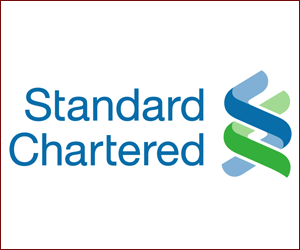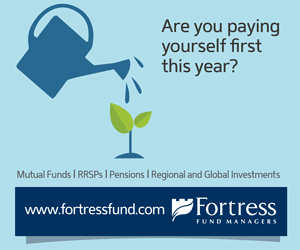Middle East > Israel > Stock Market / Finance
Stock Market / Finance in Israel
-
Izzy Tapoohi spotlights some of the factors contributing to the phenomenal success and value of Israel Bonds.
ISRAEL, 2016/05/16 Israel “Izzy” Tapoohi’s five-year term leading the Development Corporation for Israel – better known as Israel Bonds – has been unquestionably consequential. In that time period, the broker-dealer has gone from underwriting and selling $600 million worth of Israeli government bonds in the US annually to yearly domestic sales exceeding $1 billion. The 65-year-old organization has been transformed from a specialty investment vehicle primarily for supporters of Israel into a significant option for investors looking to balance and diversify their portfolios. With six months left before he steps down and turns the reins of Israel Bonds over to Israel Maimon, a former cabinet secretary, Tapoohi talked to What has changed over the course of his term, the accomplishments he is proudest of, and why he thinks Israel’s economy is still a great bet. -
NASDAQ Teams Up with Tel Aviv Stock Exchange to Nurture Israeli Start-Ups
ISRAEL, 2016/02/13 The Tel Aviv Stock Exchange (TASE) and NASDAQ, the world’s second-major stock exchange, announced a joint venture on Tuesday to build a private market for Israeli startup companies before they go public. The venture, which will be based in Tel Aviv, will be run by management selected by both exchanges. It will provide Israeli startups with strategic counseling and mentoring, exclusive networking, and a private, secondary market for financing, in an effort to help small Israeli companies get the support they need to face the challenges of building a business in Israel’s difficult market. -
Israel's proposed 2016 budget fails to deliver on promised social reforms
ISRAEL, 2015/08/08 The public put its trust in this Don Quixote-like figure, who established a socio-economic party called Kulanu that won him 10 seats. Because of that, he was appointed finance minister. The chair of Kulanu as well showed particular adeptness in his handling of the coalition negotiations. He walked away with the “toolbox” he demanded, namely control over the governmental organs most relevant to his plans, which would have enabled him to institute audacious reforms to housing, banking and the cost of living. During the last election campaign, Finance Minister Moshe Kahlon spoke often about the courage, determination and leadership necessary to correct structural economic injustice in Israel, presently dominated by monopolies and cartels. He sold himself as a different breed of politician, not indebted to anyone and capable of dealing with this chief-on. He planned on becoming finance minister from day one of his campaign. -
This gift doesn’t differentiate between religion, race or nationality, says Kahlon
ISRAEL, 2015/07/29 Any minute at this time enough, turning 18 will not only be a time to celebrate, legally drink alcohol, and enjoy adult status, it will as well be a time to cash out. An agreement between haredi parties and Finance Minister Moshe Kahlon announced on Tuesday for the upcoming budget would create an NIS 18,000 savings account for each Israeli, to be made available to them on their 18th birthday. “Our children will get to age 18 and receive their initial gift from the national: a piggy bank of NIS 18,000 to start their independent lives. This gift will cut across sectors, and doesn’t differentiate between religion, race or nationality,” Kahlon wrote on his Facebook page. “The rational is that each child will have money to purchase education that will help him in the job market.” -
Despite the geopolitical turmoil in the rest of the Middle East, Israel's stock market has been a stellar outperformer.
ISRAEL, 2015/04/04 In fact, the country's principal equity indexes are surging at time when its neighbors are declining. The Tel Aviv 100 and Tel Aviv 25 have registered double-digit gains for the year, while many others in the region have shown lackluster numbers that have worsened considerably in recent days. The most recent leg up for the Israeli markets, and leg down for regional competitors, came after Prime Minister Benjamin Netanyahu's election victory last month. That came amid a general recovery for Israel stocks, which slipped in 2014 amid economic turmoil in Europe, which Israel relies upon to take its exports, and the prolonged Gaza conflict. "As Europe seems to have stabilized and other export markets continued to grow, Israel started to hit bottom and began to turn around," said Brian Friedman, president of Israel Investment Advisors, which has a private fund that invests in the country. Though the market dipped in the days immediately following the bruising election, the TA 25 is up 3 percent over the past week. It has gained 6.9 percent in the past month and has risen 12.1 percent year to date and 16.1 percent over the past 12 months, according to FactSet. -
Finance Minister Yair Lapid.
ISRAEL, 2014/12/19 Israel’s economy shrank an annualized, seasonally adjusted 0.4 % in the third quarter of the year, according to Central Bureau of Statistics data released on Sunday. The economic pullback reflects financial damage from Operation Protective Edge against Hamas in the Gaza Strip, which raged through additional than half the period covered in the data. It was the initial quarterly decline in the country’s GDP since 2009 during the world financial crisis. The 50-day war, which saw a steady stream of Hamas rockets fired at Israeli communities, came as the economy was by presently slowing On Sunday, the estimate for second-quarter increase, which had been registered at an anemic 1.7% annual rate, was revised upward to 2.2%, and initial-quarter increase was revised up from 2.5% to 3.2%. -
Israel’s economy is a safe, stable place for investors’ money, Moody
ISRAEL, 2014/10/12 Despite the costly summer war in Gaza, Israel’s economy is still in good shape, as far as international credit rating agency Moody’s is concerned. In a statement issued Wednesday, Moody’s maintained Israel’s previous A1 stable outlook. Economic increase, entrepreneurial dynamism, and a stable political system ensured that Israel would remain a good risk for investors, the agency said. A1 is part Moody’s highest ratings. Moody’s statement completes a positive “triple crown” of post-Gaza war ratings for the country by agencies. Last month, S&P gave Israel an A+ Stable rating, and Fitch assigned Israel an A Positive rating. The ratings mean that the agencies believe Israel’s debts are “judged to be upper-medium grade,” subject to low credit risk. Most nations outside North America and Western Europe, except for China, Australia, and the Gulf states, are rated lower by all three agencies. -
Israel Electric Corp.’s Hadera power station.
ISRAEL, 2014/10/12 After last-minute backroom negotiations, the economic-social cabinet on Sunday approved a plan to privatize 11 national-owned companies over the next three years for total revenue of 15 billion shekels ($4.1 billion.) The sale includes the full or partial sale of some of Israel’s biggest and best-known companies, part them Israel Electric Corporation, Israel Aerospace Industries, Israel Post and Rafael to private investors and/or via initial public offerings on the Tel Aviv Stock Exchange. -
Israel's consumer price inflation
ISRAEL, 2013/08/03 Israel's consumer price inflation quickened less than economists expected n May, data released by Central Bureau of Statistics showed Friday. Inflation as per the consumer price index moved up to 0.9 % in May from 0.8 % in April. The figure was lower than 1.1 % estimate by economists. Inflation was influenced mainly by a 4.5 % increase in food prices, inclunding vegetables and fruit. This gain was partially offset by a 4.6 % fall in clothing and footwear prices and a 4 % decrease in transportation and communication expenses, data showed. -
Israel, UAE, Saudis in huge US arms deal
ISRAEL, 2013/04/21 The US Department of Defense is nearing the finalization of a $10 billion arms transaction with Israel, Saudi Arabia and the United Arab Emirates, The New York Times reported Thursday. The arms sale is aimed at bolstering defenses against possible next Iranian threats, the statement said.
- Trending Articles
-
- WORLD: Mobilizing Education for Global Health
- AFRICA: sustainable Housing for Rural Families in Africa
- EGYPT: Egyptian investment firm Qalaa Holdings is confident its new refinery
- AZERBAIJAN: Turkish PM to visit Baku
- GREECE: Migration and Women’s Health: A Neglected Issue in Need of Action
- INDIA: Bangalore, India gives Seychelles a special welcome







